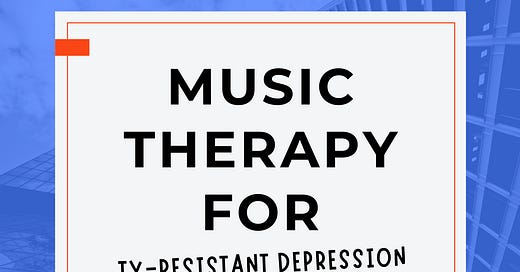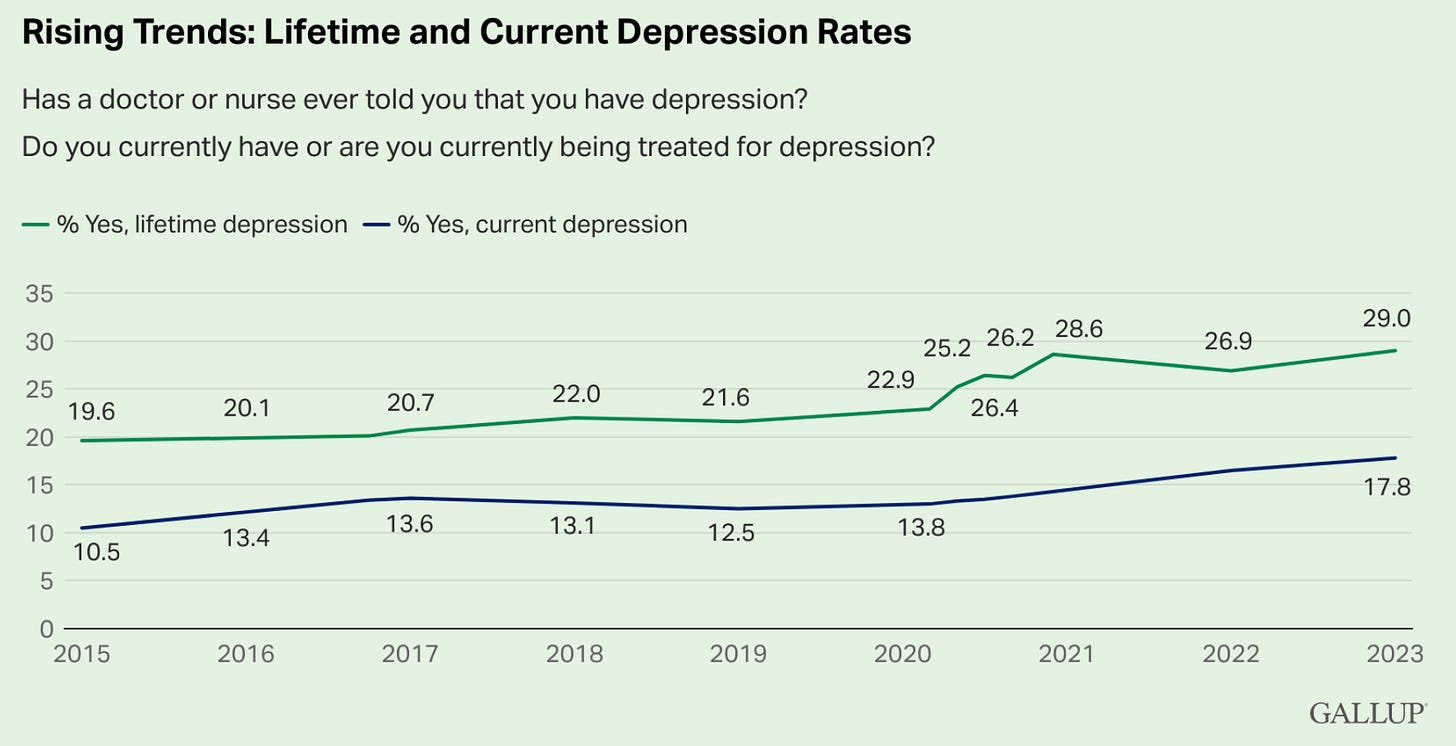Music Therapy: Cure For Depression or Wishful Thinking?
The benefits of music therapy in treatment-resistant depression.
I’m Paul Ciuryek, MD, and this is MedSpresso: An independent, subscriber-supported newsletter summarizing the most important and impactful news, studies, and research from the fast-changing world of healthcare. This newsletter is for you if you care about your health, the health of your loved ones, or the health of mankind.
A 2023 Gallup poll asked Americans to open up about their mental health…
Specifically, whether they’ve ever been diagnosed with depression.
I’d hoped the data would reveal surprisingly good news, but it didn’t.
By The Numbers:
• 29% of U.S. adults reported being diagnosed with depression in their lifetime
• 36.7% of women report being diagnosed with depression at some point in their lives; men reported 20.4%
• Depression in women has risen at nearly twice the rate of men since 2017
Why are these numbers so disheartening?
It tells me I’m not alone.
I’ve never openly shared my mental health struggles—maybe one day I will—but anxiety and depression have been a constant presence since my early twenties, and it’s saddening to see that I’m not alone.
This isn’t about me; it’s about all of us.
If you’re not affected, you probably know someone who is—whether or not they’ve openly admitted it.
There are plenty of solid pharmaceuticals on the market…
Selective serotonin reuptake inhibitors (SSRIs) are the highly effective drug of choice for depression, but they don’t work for everyone. Sometimes, the side effects—loss of libido and inability to orgasm—are too much for patients to deal with, but there are great substitutes that work well and wake up that libido 😀.
For the unlucky few, nothing works. One treatment after another fails to deliver meaningful results. When this happens, it’s called treatment-resistant depression.
ENTER… MUSIC THERAPY.
A study published in Cell Reports looked at twenty-three people with treatment-resistant depression.
Music therapy has proven effective in treating various mental health conditions, including depression.
We know it works, but researchers want to know how and why… This can help us achieve faster and better results.
When auditory signals—the music—flood the ears and shoot electrical signals to the brain, what’s actually happening? This is the study’s core question.
WHAT THEY FOUND…
#1. Personal Enjoyment Mattered: Music familiarity or a developed enjoyment during the study led to the greatest improvement. Just like hearing your favorite song on the radio instantly makes you feel good.
#2. It Lights Up Reward Circuitry: Musical enjoyment lit up the brain’s reward circuitry, improving mood and reducing depressive symptoms. You know that feeling when a particular song starts playing, and you’re suddenly in the mood to sing and dance? That’s the music tickling your reward circuitry.
#3. Synchronization Matters: Musical enjoyment led to better synchronization between auditory and reward circuits. An easier way to think of this process is like this: The parts of the brain responsible for processing music and reward were in sync. The more they were in sync, the better the therapeutic benefits.
WHAT IT ALL MEANS…
Music can drastically alter our mood—shocking, I know!
Unless you’re in the unlucky 3% of the population with musical anhedonia—a condition that causes you to derive no joy or pleasure from music—you’re a regular recipient of music’s impact.
This study provides further insight into how music therapy works and lays a treatment foundation for those unaffected by traditional therapeutics.
By better understanding how music impacts the brain’s reward circuitry, researchers can explore new ways to turn music into a potent therapeutic…
Turning it into more than just a way to get pumped up before a workout, turn yourself into a rockstar while sitting in traffic, or set the mood after a date night 😉
Like this post?
👉 Tap the 🧡 below to let us know!
👉 Hit ♻️ and share it with your network!
👉 Support MedSpresso with a Premium Subscription
Thanks for reading!









